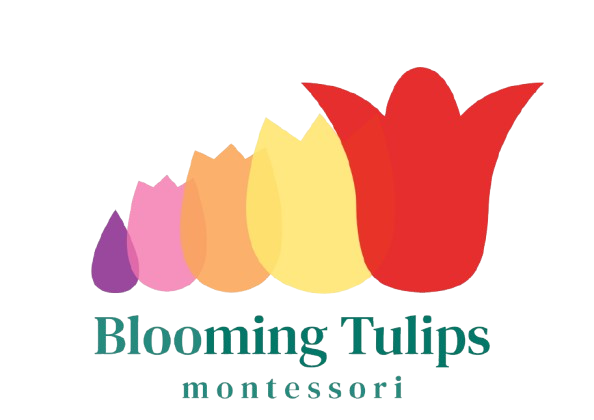Being a parent searching for the perfect Montessori nursery can be intimidating, especially if you’re new to this world! Yet, it’s vital to ensure that we give our children quality education. So what makes a great Montessori nursery? Let’s explore some key factors parents should consider when deciding on a Montessori setting.
It’s important to do thorough research when selecting a Montessori nursery for your child. Unfortunately, the term “Montessori” is not trademarked or protected in any way – so it can be difficult shifting through all of the options and choosing one that offers genuine Montessori care and education
While researching different nurseries for your little ones, the most critical part is to get a natural feel for them. So make sure you chat with staff members at the nursery – there’s more than what their Ofsted reports says. Spend some time observing the setting; sit back, quietly watch room activities and listen out for your gut instincts; they never lie, especially when it comes down to finding that perfect place for your child!
When looking for a Montessori nursery, confirming whether the institution is accredited by either AMI (Association Montessori International) or MCI (Montessori Centre International) is crucial. These two UK organisations ensure that nurseries meet stringent criteria to provide students with an authentic Montessori experience. So if your potential nursery has earned its seal of approval, then rest assured – this means they are following real Montessorian principles.
A Montessori room should be a place that nurtures learning and sparks an engaging environment for the little ones. Through uniquely crafted furniture, shelves, and tools all tailored to children’s size; these rooms can help foster independence as children build upon what they take in from their surroundings. Maria Montessori recognised this importance, noting, “We must make the environment as interesting and attractive as we can, thus creating a safe discovery space.”
Check to see whether the Montessori materials are crafted from natural elements such as wood? Is the room warmly organised with all supplies within reach for exploring little hands? Does it have a welcoming ambience that encourages creativity and playfulness in equal measure?
When exploring Montessori nurseries, it’s essential to pay attention to the materials used. A good nursery will offer an environment of calm and simplicity; think neutral colours and natural elements in moderation – plus special rooms equipped with carefully planned out Montessori material on open shelves that encourage your child’s growth!
The Montessori garden must be a nurturing and natural way for children to learn, play, and explore – the perfect spot to get their hands dirty! From gardening activities with soil to observing animals outside, the outdoor oasis must offer many exciting opportunities that encourage movement while helping children grow. The children must be free to move between indoor-and-outdoor spaces where they can develop skills every day.
To ensure your child is in the best hands – ask about their qualifications to ensure a Montessori-certified teacher is teaching them. The directress will make all the difference! (Montessori teachers are often called directresses).
Does the setting allow the children in the Montessori environment to reach their full potential? The children should be given at least two and a half hours of uninterrupted work time. This continuous stretch helps them settle into learning mode and complete meaningful activities that build knowledge!
Children should have free access to snacks and water. Being able to prepare their own snack is an excellent way for children in Montessori rooms to foster independence, build confidence and hone competency skills. Plus, they’ll always be nourished with easy access to healthy snacks and water.
Montessori settings are like a tiny world of adventure for children. Little ones explore their interests while teachers move amongst them – lovingly guiding and observing them. As a parent, you can learn much about the nursery by just being in the room and watching. Visit the nursery and experience it all firsthand before deciding about the nursery.
However, all nurseries in England must embrace the Early Years Foundation Stage curriculum, thanks to Maria Montessori – who observed children more than a century ago and designed her own course of study based on their needs. Her Montessori system remains relevant today, with its principles being intuitively compatible with those found within EYFS.
As a parent, you possess invaluable inner knowledge about your child and are the only one who can make the best choice for them. Take the time to listen to and trust this voice of instinct when considering their education and which nursery they should attend. Ask yourself; Does the environment feel right? Are teachers nurturing? Would your little one be happy in the setting? While there’s no ‘one size fits all’ solution for each little learner, it helps if you tap into that trusting intuition deep within – as only YOU can make decisions based on what will be best for them!
“The adult, the child, and the environment are a trinity. They should be considered as one. ” ––Maria Montessori

Hi, my name is Dilia. I am the founder and managing director of Blooming Tulips Montessori Nursery. I am passionate about childcare and am doing my part to help make our world a better place by caring for, educating, and nurturing young hearts and minds.
“I believe the childcare practitioners are doing one of the most important jobs in the World; ‘They can play their part in making this world a better place by providing quality care and education for children. As a mentor and coach it is my obligation to make sure I do everything I can to create this mindset in my practitioners.’ Once this belief is internalised, that person can find meaning in even the most mundane tasks.” – Dilia Bas
Parents, Let’s work together!
“Your child is a unique individual with boundless potential and possibilities. By working together, we can unlock the doors to a life full of excitement and fulfilment. We can inspire young learners to embrace a life-long love for knowledge. From thinking mathematically to creating masterpieces, let’s nurture your child’s unique potential. Help your child to discover their capabilities and build deep personal values that will serve them well through adulthood. Let’s help them become unstoppable forces of good in the world. Together we can do this!” Dilia
